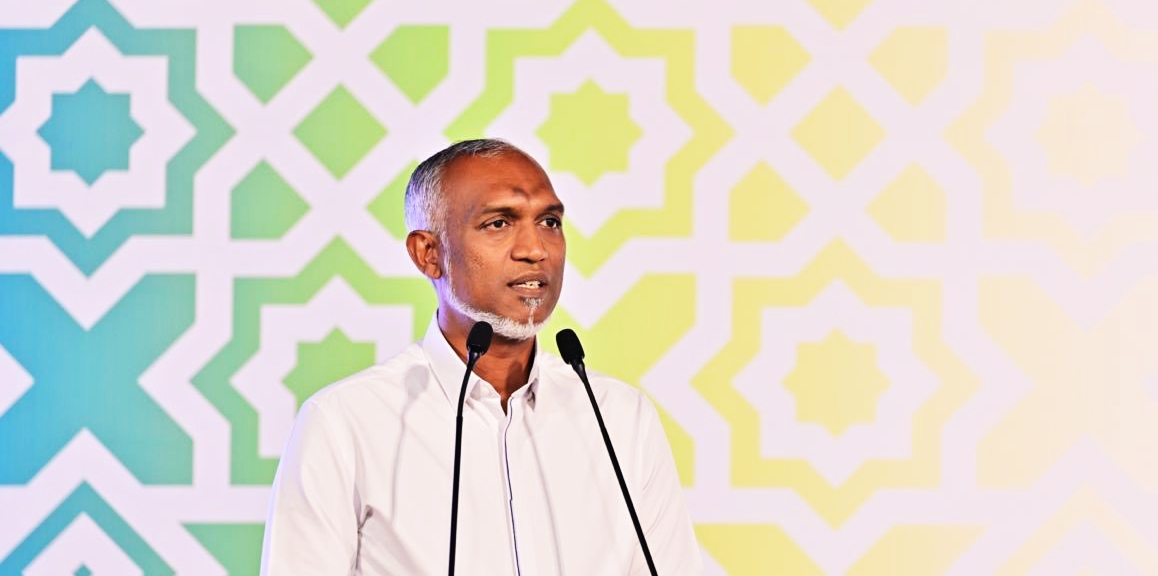Table of Contents
Muizzu, a candidate representing the opposition coalition of the Progressive Party of Maldives and PNC, secured 54% of the votes in the conclusive round of the recent presidential elections. The President-elect is emulating the approach of his mentor, former president Abdulla Yameen, concerning the removal of Indian troops and a closer alignment with China. On the other hand, the Indian contingent asserts that their presence in the Maldives is solely for disaster relief purposes and not for conducting any open or covert military activities, either within the country or beyond its borders.
Following the polls, Indian High Commissioner to Maldives Munu Mahawar visited the president-elect on October 4 and delivered a letter from Prime Minister Narendra Modi. The Maldivian account of this meeting did not explicitly touch on the controversy surrounding the presence of foreign troops, but it highlighted Muizzu’s aspiration to “reestablish relations with India based on mutual respect for sovereignty.”
India’s Claim of Humanitarian Aid
India and Maldives share a longstanding historical connection dating back several centuries. India was the first nation to acknowledge Maldives’ independence in 1965 and establish diplomatic relations. Both countries endured colonial oppression and plundering, sharing a common aspiration for independent growth and progress. India has consistently been the primary responder to Maldives not only in times of emergencies but also for long-term efforts in building capacity. Both nations boast vibrant democracies, which further solidify their natural partnership in times of need.
India has played a pivotal role in strengthening Maldives’ defense and security infrastructure, engaging in capacity-building initiatives. This commitment was reaffirmed in 2006 when they gifted the Coast Guard Ship Huravee to the Maldives National Defence Force (MNDF) for combatting transnational crimes and bolstering coastal surveillance. In May 2023, India provided a replacement ship of the Trikant-class to MNDF. They also conduct regular training for MNDF personnel at various Indian establishments. The journey of defense cooperation between India and Maldives also includes vital humanitarian efforts such as medical evacuations, search and rescue missions, and routine maritime patrols to counter transnational crimes and drug trafficking.
Given the geographical separation of islands in the Maldives, transportation and mobility, especially during critical medical evacuations, pose significant challenges. Indian aircraft, comprising two helicopters and one Dornier, play a pivotal role in providing emergency aid to all strata of the Maldivian community, thereby saving lives.
These aircraft, equipped with advanced medical facilities and trained personnel, are capable of swiftly evacuating critically ill or injured individuals for specialized treatment on the mainland. This capability ensures that medical emergencies are addressed promptly, ultimately saving lives and alleviating suffering.
Over the past five years, Indian aircraft have saved over 500 lives, ranging from a one-day-old infant to a 97-year-old individual, through medical evacuations from across the Maldives, even in challenging weather conditions. These aircraft have transported numerous patients from remote islands to regional healthcare centers or the capital’s hospital. Throughout these endeavors, MNDF receives critical support from the Indian contingent and delivery platforms.
However, it’s essential to recognize that these operations are conducted under demanding circumstances. The aircraft operate with limited support infrastructure and facilities on the islands. Despite these challenges, the aircraft have maintained a high level of serviceability through close coordination with various support agencies, including Service Headquarters, Liaison units, depots, overseeing facilities, and Original Equipment Manufacturers (OEMs).
The unwavering support from India ensures that the aircraft are always ready for round-the-clock operations. As an outstation unit with limited resources, the units consistently go above and beyond, employing innovation and resourcefulness to overcome maintenance challenges that might otherwise seem insurmountable. This highlights the dedication of the aviation teams in providing the best possible services to the Maldives.
Maldives’ Apprehension
Maldives President-elect Mohamed Muizzu expressed his dtroops to be relocated within the initial week of his presidency. He emphasized the seriousness of this foreign policy priority in discussions with the Indian high commissioner after his electoral victory. Muizzu also conveyed this message during a recent interview with Al Jazeera, stating that he personally raised the issue with India. He noted that India responded positively and expressed willingness to collaborate on a resolution.
Muizzu’s term is set to commence on November 17, marked by a formal swearing-in ceremony during the ongoing transition period in the Maldives. When asked about the timeline for troop removal, Muizzu affirmed that it is a top priority from day one, ideally within the first week. He emphasized concerns about Maldives’ independence if foreign troops remain stationed on its soil, highlighting the country’s historical peacefulness without such a presence.
Regarding the controversy surrounding the alleged presence of foreign troops, Muizzu referred to conflicting reports on their numbers, which have been subject to censorship in the media. He expressed the hope that upon assuming the presidency, the number of foreign troops would be significantly reduced, but even a smaller presence would be considered inadequate. Muizzu affirmed his commitment to engaging in diplomatic discussions with the Indian government to facilitate their removal.
In terms of broader military cooperation, Muizzu indicated that it would continue with various countries, including India. He clarified that he does not aim to escalate military cooperation with China as a means to balance relations with India. Notably, Muizzu addressed concerns about Maldives’ external debt, which includes substantial loans from India. He raised this matter with the Indian envoy, who responded positively and expressed openness to explore refinancing options, and potentially even debt waiver.
When asked about potential incentives for India to remove foreign troops in light of the Maldives’ debt waiver request, Muizzu asserted that India made its position clear in their initial meeting with the high commissioner.
Read Further: https://test.inpactimes.com/israel-or-hamas-who-is-responsible-for-the-killing/
